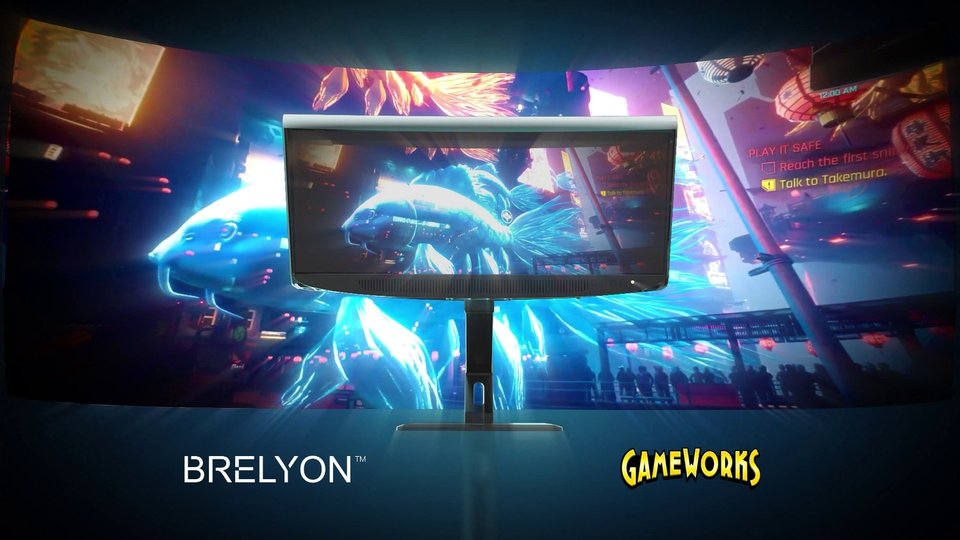Commentary
LBE investment emerges: Can players learn from past mistakes?
The failure of the NBA Experience, followed by GameWorks, has hammered home the need for a professional and experienced approach to the deployment of interactive experiences towards a diverse audience.

April 11, 2022 by Kevin Williams
The location-based entertainment market and the emergence of social entertainment are about to see a new phase of activity, and we hope the lessons from the last failed attempts have been learned.
The attempts in the 1990s to define a new era of amusement and entertainment space for a more diverse audience took on a new relevance as the ghosts of those attempts raised their heads again, both in the final consolidation of one, and the re-emergence of concepts from another.
GameWorks, which succumbed to problems with its past management decisions and the impacts of the enforced lockdown, was among the remaining properties of the original LBE explosion in the 1990s.
In 1996, the concept was branded Sega GameWorks, a partnership between Dreamworks SKG, MCA/Universal Studios and Sega Enterprise, with additional partners Microsoft, and other high-profile names.
The operation acquired the failed Jillian's bowling entertainment brand, only to then fall into administration — having operated, at its height, some 30 sites. A complicated management buyout took place, then a complicated round of owner handovers, with 2010 seeing the relaunch of the operation first controlled by Oomba, the much-hyped social network start-up, but then, in 2018, the ownership reverted to ExWorks Capital.
GameWorks had pivoted from the U.S. interpretation of the Sega Joypolis concept to the e-sport gaming experience, supported by amusement and F&B. The pivot proved a difficult maneuver.
Some were quick to lay the failures of the operation at the feet of their owners, compounded by the impact of loss of business during the lockdown, but it was clear this had been a struggling operation, even while projecting an outward image of continuation.
The embarrassing failure of the NBA Experience, followed by GameWorks, has hammered home the need for a professional and experienced approach to the deployment of interactive experiences towards a diverse audience.
Return of DisneyQuest concepts?
Meanwhile, DreamWorks created GameWorks LLC to partner with Sega Enterprises, and so take away the opportunity from Walt Disney which had started the discussions. Disney would go on to create its own answer to the 1990s power-play towards establishing location-based entertainment — with the famous "DisneyQuest" franchise facility.
Eventually, DisneyQuest failed to live up to expectations, and the $90 million investment would only see two facilities open in Orlando and Chicago — the latter only surviving a matter of months, while the Disney Springs site would go on to live for nearly 20 years.
But the DisneyQuest specter is about to reappear, with the opening this year of a concept from the House of Mouse called "Play!" The pavilion is a new attraction within the World of Discovery in Epcot Walt Disney World Resort.
All this, along with a selection of video amusement pieces — the first time in recent history that Disney has seriously deployed amusement hardware since the last days of its flirtation with ESPN Zone. It even includes a popular character "Meet-and-Greet" area — alongside a toddler play area.
The concept of digital animation drawing stations, connected to a central "animator" teaching the skills, has gone on to be a firm favorite with installations at Disney's Hollywood Adventures, Hong Kong Disneyland and other locations.
We look forward towards seeing if this concept is a single entertainment offering or could be the start of a return to considering a LBE chain concept.
Cinemas still struggle
Problems were also obvious pre-lockdown in the cinema sector and, post-lockdown, it has taken to early 2022 for the ripples to gather pace.
The first was the news of the competition, acquisition and mergers, with the acquisition of all of the stock in Showbiz Cinema by Evo Entertainment. Evo had delayed its expansion plans of a 68,000-square-foot mixed-entertainment location in Dallas for 2022 and will now control the combined operation.
Following this acquisition, further news hit that prominent entertainment properties were all being thrown up for purchase. This development is expected to be followed by other prominent locations throwing themselves over to the recovery and available investment for location-based entertainment — and a new redevelopment of LBE style deployment to make light of the changing economic conditions for "retailtainment."
Sadly, the rebounding cinema industry has also seen the impact of staffing issues. Canadian chain Cineplex laid off some 6,000 part-time employees at roughly 67 venues across Ontario and Quebec.
The right lessons
While many will be quick to spin a global health crisis narrative for current challenges, the reality is that the situation has been much more nuanced regarding preconceptions of what the amusement and game mix could offer the modern sophisticated gaming audience. This also reflected a possible deficit in experiences towards the experiential needs of the modern market from the teams assembled.
One example is with operator Palace Entertainment, a subsidiary of Parques Reunidos, and a leading global leisure attraction operator, with more than 60 different assets including theme parks, zoos, marine parks and water parks.
The company recently announced its acquisition of Adventureland Resort in Altoona, Iowa, a family-run business since opening in 1974. The venue has more than 100 rides, shows and attractions for all ages, from mild to wet-and-wild, and features shows throughout the park for a variety of family fun and entertainment.
Newcomers to the OOH market are not burdened with previous debt and have avoided some of the recurring management mistakes, whilst others have failed to learn from the opportunity that this growing market represents.
(Editor's note: Extracts from this blog are from recent coverage in The Stinger Report, published by Spider Entertainment and its director, Kevin Williams, the leading interactive out-of-home entertainment news service covering the immersive frontier and beyond.)
About Kevin Williams
Along with advisory positions with other entrants into the market he is founder and publisher of the Stinger Report, “a-must-read” e-zine for those working or investing in the amusement, attractions and entertainment industry. He is a prolific writer and provides regular news columns for main trade publications. He also travels the globe as a keynote speaker, moderator and panelist at numerous industry conferences and events. Author of “The Out-of-Home Immersive Entertainment Frontier: Expanding Interactive Boundaries in Leisure Facilities,” the only book on this aspect of the market, with the second edition scheduled for a 2023 release.
 ChatGPT
ChatGPT Grok
Grok Perplexity
Perplexity Claude
Claude






